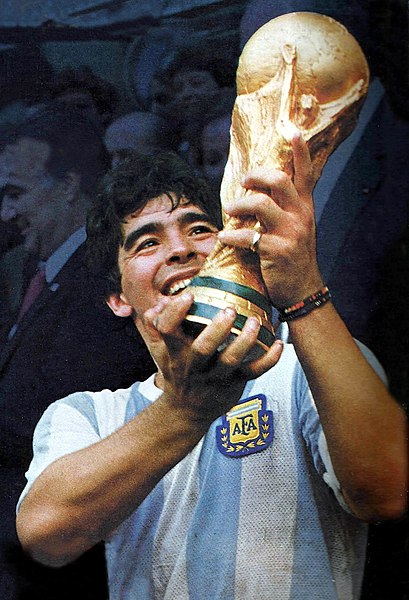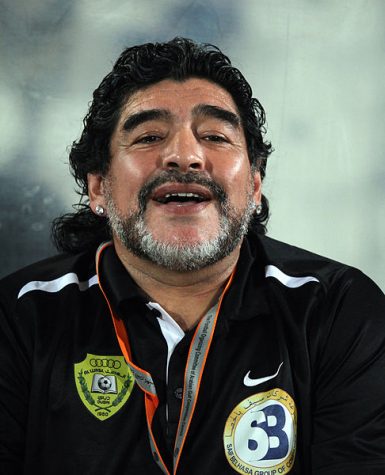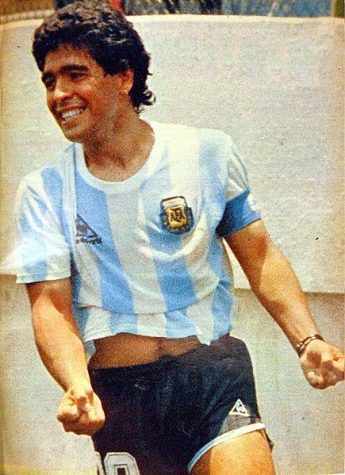Diego Maradona, Soccer Icon, Dies At 60
Argentinian soccer star passes away from heart failure.

Unknown author, Public domain, via Wikimedia Commons
Maradona holds up the 1986 World Cup trophy after he and the Argentinian National Team defeated West Germany.

On November 25, 2020, Diego Maradona passed away from Pulmonary edema, a condition where fluid accumulates in lung tissue, caused by heart failure. Two weeks prior to his death, he had been released from the hospital for bleeding of his brain. The Argentine Football Association confirmed Maradona’s death on their social media tweeting, “The Argentine Football Association, through its President Claudio Tapia, expresses its deepest sorrow for the death of our legend, Diego Armando Maradona. You will always be in our hearts.” A few days after his death, fans celebrated his life and career and mourned his death in the streets of Argentina and Naples. “You could see his death was coming with all the hospitalizations that were reported the last few years. It’s just always so unexpected to wake up to news like that. The Argentine will forever be remembered as a legend in the game of soccer and the impact he left is even greater,” says Lafayette student Aaron Zimmerman as he reflects on Maradona’s life, death and legacy.
Diego Maradona was born October 30th, 1960 in Argentina and raised in the outskirts of Buenos Aires. Maradona was given his first soccer ball at 3 years old and soon became obsessed with the sport. He was seen by a talent scout at the early age of 8, and was put on a junior team of the Argentinos Juniors of Bueno’s Aires. Later, just before his 16th birthday, he made his professional debut for that same team. Throughout the rest of his long soccer career he played on many other teams including Barcelona, Napoli, and the Argentina National Team. Aside from playing, Maradona was also a manager and coach in his many years in the soccer world. He managed 8 different clubs throughout his life, including Argentina, Al-Wasl, Fujairah and more. He coached the Argentina World Cup team from 2008-2010 and Gimnasia de La Plata from September 2019 until his death.

Maradona is regarded by many as one of the best players of all time. People praised him for his dribbling, field vision, ball control and creativity on the field. His strong legs and short height gave him a low center of gravity, good balance and an ability to dribble through defenders even through their physical pressure. His speed and agility made him difficult to defend. Early on in his soccer years, he was given the nickname “El Pibe de Oro”, which means The Golden Boy. This nickname stuck with him all through his career. As a strong attacking midfielder, he set the world record transfer fee twice, the first soccer player in history to do so.
Unfortunately, Maradona did have a drug and alcohol problem in some periods of his life. He struggled with cocaine and alcohol abuse for many years, some during his professional soccer years. However, this does not take away from the fact that he left a strong legacy and will be remembered for years to come.
Despite hardships in his health and his death at an early age, Maradona will always be remembered as one of the best soccer players of all time. He left a legacy of inspiring others to play around the world and changing the game of soccer for all.




